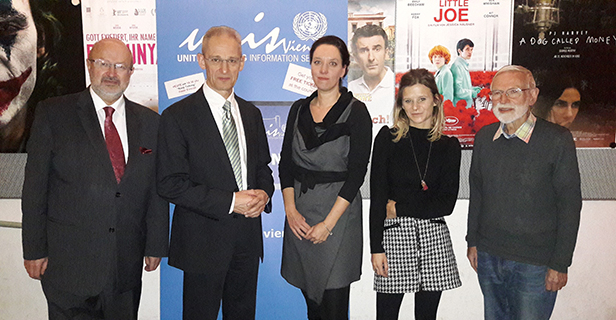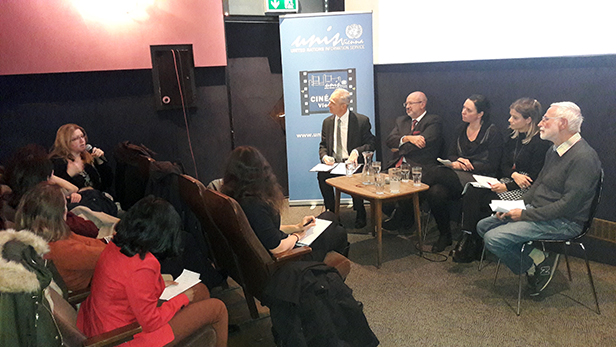
Language is more than just a means of communication. It is a way of looking at the world and gives insight into the culture in which the language is embedded. This is precisely what the documentary "Keep Talking" communicates to the viewer: language, no matter in which form, constitutes a part of one's identity.
On 16 December, Ciné-ONU Vienna, in collaboration with the Organization for Security and Co-Operation in Europe (OSCE), screened the film to mark the International Year of Indigenous Languages and Human Rights Day. "Keep Talking" focuses on four Alaska Native women, fighting to save their endangered language and heritage. They are trying to transfer their knowledge to young people, conveying to them that they should be proud of their native culture and embrace it as such.
The Director of the United Nations Information Service (UNIS) Vienna, Martin Nesirky, introduced the film and the panellists to the audience and moderated the discussion afterwards. The OSCE High Commissioner on National Minorities, Lamberto Zannier, slavicist/linguist and representative of the Burgenland-Croatian Centre in Vienna, Katharina Tyran, translation studies scientist Christina Korak from the University of Graz and Georg Grünberg, a social anthropologist from the University of Vienna, joined the panel to discuss the movie and provide insights into their work.
All panellists agreed that language is the key to sustaining a culture and therefore needs to be valued. Similarly, the experts highlighted the importance of education and that in particular mother tongue education needs to be promoted and supported. High Commissioner Zannier remarked that "diversity is something to treasure" and added that multiple identities based on multilingualism should be encouraged. Katharina Tyran, a speaker of Burgenland-Croatian herself, emphasized the innate connection between language and culture, especially for minorities or indigenous people. Christina Korak, who worked with the Waorani, a recently contacted people in Ecuador's Amazon region, commented that people need a safe environment to express their culture, but languages also need an intact environment. Georg Grünberg said the key, as much as protection, was simply for those languages to be used and included in daily life.
